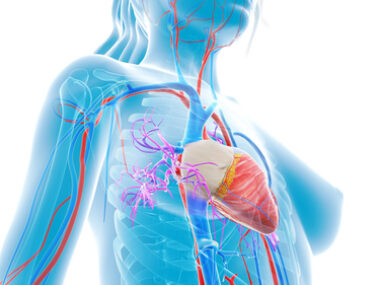Gradient enrolls 1st patient in study of ultrasound-based catheter device
Duke University doctors 'actively screening' for heart failure patients for study
Written by |

Gradient Denervation Technologies has enrolled the first patient in a clinical study of an ultrasound-based catheter device for the treatment of pulmonary hypertension (PH) caused by left heart disease.
The PreVail-PH2 (NCT06052072) study is evaluating the feasibility of the minimally invasive device in delivering therapeutic ultrasound energy to reduce nervous signals that stimulate the narrowing of the pulmonary arteries — the cause of PH.
The early feasibility study is expected to recruit about 30 participants altogether, all with PH due to left heart disease. It will be conducted at Duke University Hospital in Durham, North Carolina.
“We are thrilled to initiate this study and bring our technology to patients in the United States,” Martin Grasse, Gradient’s CEO, said in a company press release. “We look forward to continuing to work with the [U.S. Food and Drug Administration] and our clinical partners as we enroll this study.”
Catheter device designed to lower blood pressure, prevent heart damage
PH is associated with high blood pressure in the pulmonary arteries, which transport blood from the heart to the lungs. As a result, the right side of the heart needs to work harder to pump blood, causing it to become enlarged and weakened.
The disease most commonly is caused by left heart disease. Normally, oxygen-poor blood is pumped from the right side of the heart to the lungs, where the blood takes up oxygen. The blood is then transported back to the left side of the heart, where it is pumped throughout the body.
According to Gradient, as many as half of people with heart failure — meaning the heart muscle does not pump blood as well it should — have high pulmonary vascular resistance, a measure of resistance of blood vessels to blood flow that is typically elevated in PH.
Gradient developed the catheter device to promote pulmonary artery denervation, or the loss of nerve signals of the sympathetic nervous system, by using ultrasound. One of the sympathetic nervous system’s functions is to promote the narrowing of blood vessels in stressful situations.
Use of the device is expected to lower pressure in the pulmonary arteries and reduce further damage to the heart.
Completion of this study is a crucial first step toward developing a targeted treatment option with the potential to improve outcomes and quality of life for these underserved patients.
The study will assess any serious adverse events and changes in pulmonary vascular resistance. While it is identified as a multicenter study, no other clinical sites have yet been identified.
“We are actively screening for additional patients, and will continue to work closely with our study collaborators to complete enrollment in this important trial,” said Richard Krasuski, MD, director of Duke’s Adult Congenital Heart Center.
Gradient last year announced it had received funding to help support the clinical development and testing of the catheter device.
“Completion of this study is a crucial first step toward developing a targeted treatment option with the potential to improve outcomes and quality of life for these underserved patients,” said Marat Fudim, MD, an advanced heart failure specialist at the Duke Cardiology Center.




